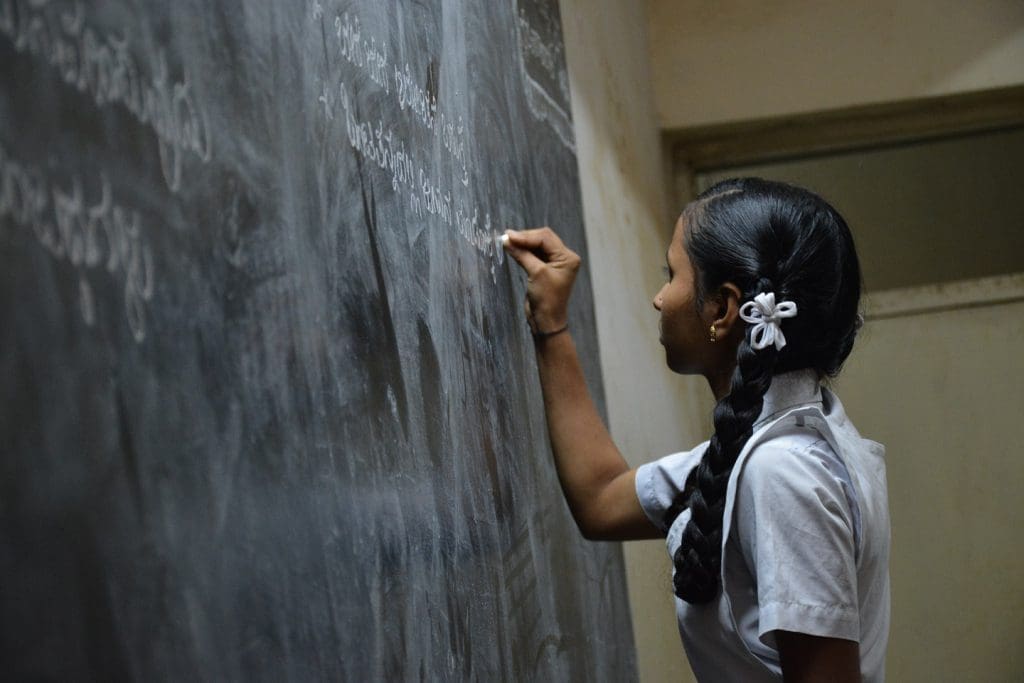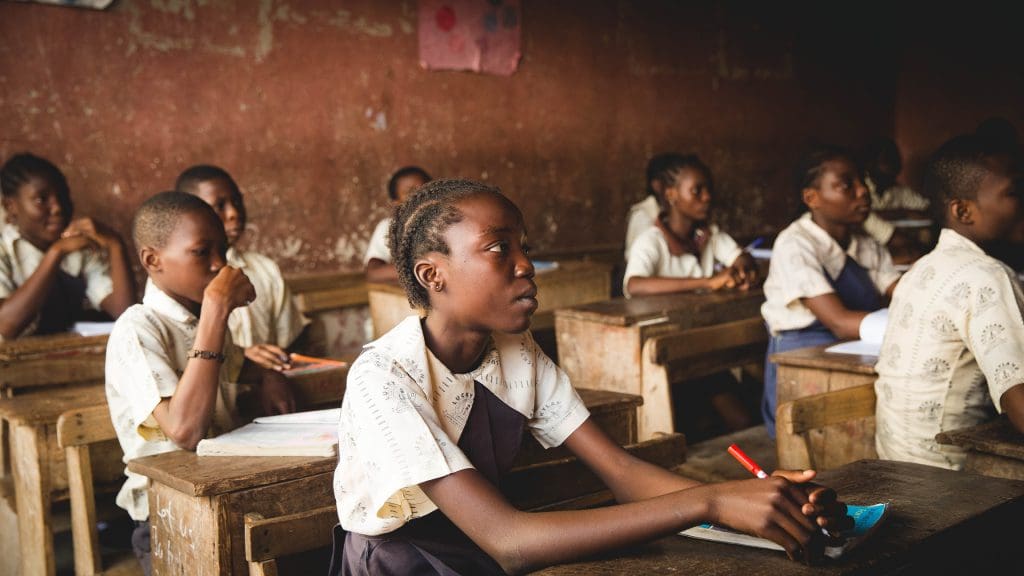
ICRW Welcomes Bipartisan Keeping Girls In School Act
Media Contact: Kirsten Sherk

WASHINGTON (October 16)—The International Center for Research on Women (ICRW) welcomes the House introduction of the Keeping Girls In School Act (H.R. 7055), a bipartisan bill designed to utilize the expertise and power of the U.S. government to tackle the root causes that are currently keeping more than 130 million girls (ages 6-17) globally from enrolling in and attending school.
Introduced ahead of International Day of the Girl Child on October 9th by Representatives Lois Frankel (D-FL) and Susan Brooks (R-IN), the bill recognizes that adolescent girls face enormous barriers to accessing secondary education. The Keeping Girls in School Act will help the U.S. Government address these barriers through smart investments and coordinated efforts between U.S. Government agencies. The bill is designed to complement existing guidance and legislation on education and adolescent girls, and has bipartisan support, including from its original cosponsors, Nita Lowey (D-NY), Dan Donovan (R-NY), Brian Fitzpatrick (R-PA) and Ami Bera (D-CA).
“Keeping girls in school increases education and economic outcomes, delays marriage and pregnancy and promotes healthy transitions to adulthood,” said Lyric Thompson, ICRW’s Director of Policy and Advocacy. “It’s one of the best returns on investment, and we are proud to support this legislation and the body of foreign policy it contributes to in terms of U.S. leadership for girls globally.”
Adolescent girls ages 10-19 make up an estimated 600 million of the world’s population, and the vast majority of these girls – around 90 percent – live in low- and middle-income countries. Adolescence is a critical time in a girl’s life. Their experiences in school and the skills they acquire, play a formative role in their personal growth and employability as they enter adulthood, as well as a larger role in helping global economies develop and meet international commitments, including those laid out in the Sustainable Development Goals.

H.R. 7055’s inclusion of the U.S. Global Strategy to Empower Adolescent Girls is particularly critical to the success of U.S. programming and policy. The Strategy is the first-ever, of any government, to look at girls’ lives holistically, with attention to rights, education, health, safety and addressing harmful practices. The policy is evidence-based, citing research by ICRW and other organizations, and is truly groundbreaking.
Research has shown that when girls are included in development and peace efforts, programs and policies affecting them are more effective, more efficient and more sustainable. Ending practices like child marriage, that are keeping girls from living their full potential, would have sizable economic impacts. A recent study ICRW conducted with the World Bank found that from now until 2030 the practice of child marriage is going to cost developing countries trillions of dollars.
Overcoming barriers and keeping girls in school will have considerable ripple effects throughout local communities and global economies, but the biggest changes would be for girls themselves, who would be equipped with the tools necessary for healthy and successful lives.
The International Center for Research on Women is a global research institution whose work advances gender equity, inclusion and the alleviation of poverty worldwide. Headquartered in Washington, DC, with regional offices in India and Uganda, ICRW provides research and analysis to inform programs and policies that promote gender equality and help alleviate poverty.
